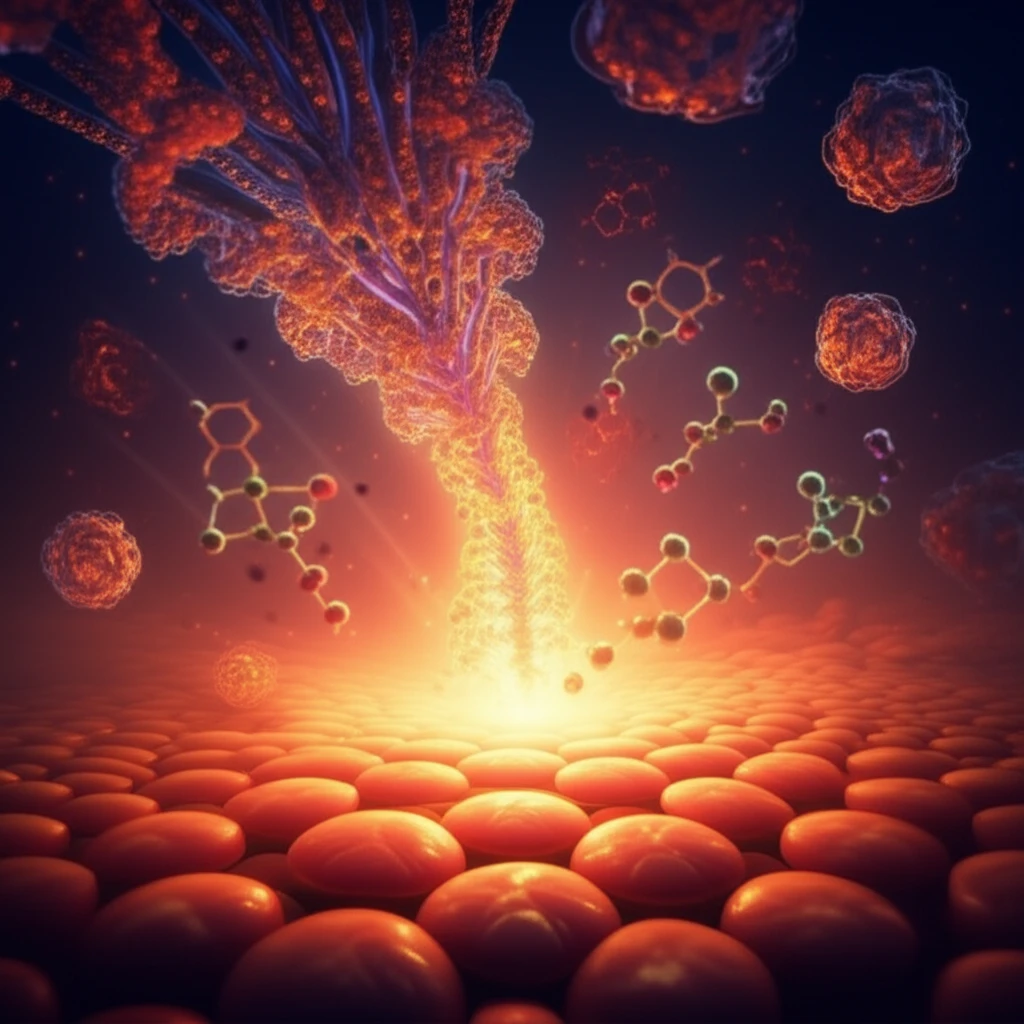
Unlock Youthful Skin: The Collagen Tripeptide Secret
"Discover how collagen tripeptide extends lifespan and boosts skin health through a revolutionary p38 MAPK pathway."
The skin, our body's largest organ, acts as a crucial barrier against environmental stressors like UV radiation and injury. Collagen, the primary component of the skin's extracellular matrix (ECM), is essential for maintaining its protective function. However, as we age, collagen production declines, weakening the skin and making it more vulnerable.
Scientists have been exploring ways to combat this age-related decline in collagen. One promising avenue involves collagen tripeptide (CTP), a compound derived from collagen. Research indicates CTP can stimulate collagen production, but the exact mechanisms and its potential for extending lifespan remain areas of active investigation.
A recent study sheds light on how CTP works at a molecular level to boost collagen and potentially slow the aging process. The findings reveal a conserved signaling pathway involving p38 mitogen-activated protein kinase (MAPK) that plays a key role. This article will explore these exciting discoveries and what they could mean for future skincare and anti-aging strategies.
CTP Activates Collagen Production via the p38 MAPK Pathway

The study, conducted on Caenorhabditis elegans (C. elegans), a nematode worm commonly used in aging research, demonstrated that CTP significantly upregulated collagen gene expression. This means CTP effectively tells the cells to produce more collagen.
- CTP enters the cells and activates p38 MAPK.
- Activated p38 MAPK then signals SKN-1, a transcription factor.
- SKN-1 turns on the genes responsible for collagen production.
The Future of Collagen and Anti-Aging
This research provides compelling evidence that CTP can promote collagen production and extend lifespan, at least in C. elegans. Importantly, the study also showed that CTP activates the p38 MAPK pathway in mammalian cells (specifically, HeLa cells), suggesting that this mechanism is conserved across species.
These findings open up exciting possibilities for developing new skincare products and anti-aging therapies. By harnessing the power of CTP and the p38 MAPK pathway, we may be able to combat age-related collagen decline and maintain youthful skin.
Further research is needed to fully understand the long-term effects of CTP and its potential benefits for human health. However, this study offers a promising step toward unlocking the secrets of collagen and developing effective strategies for healthy aging.
